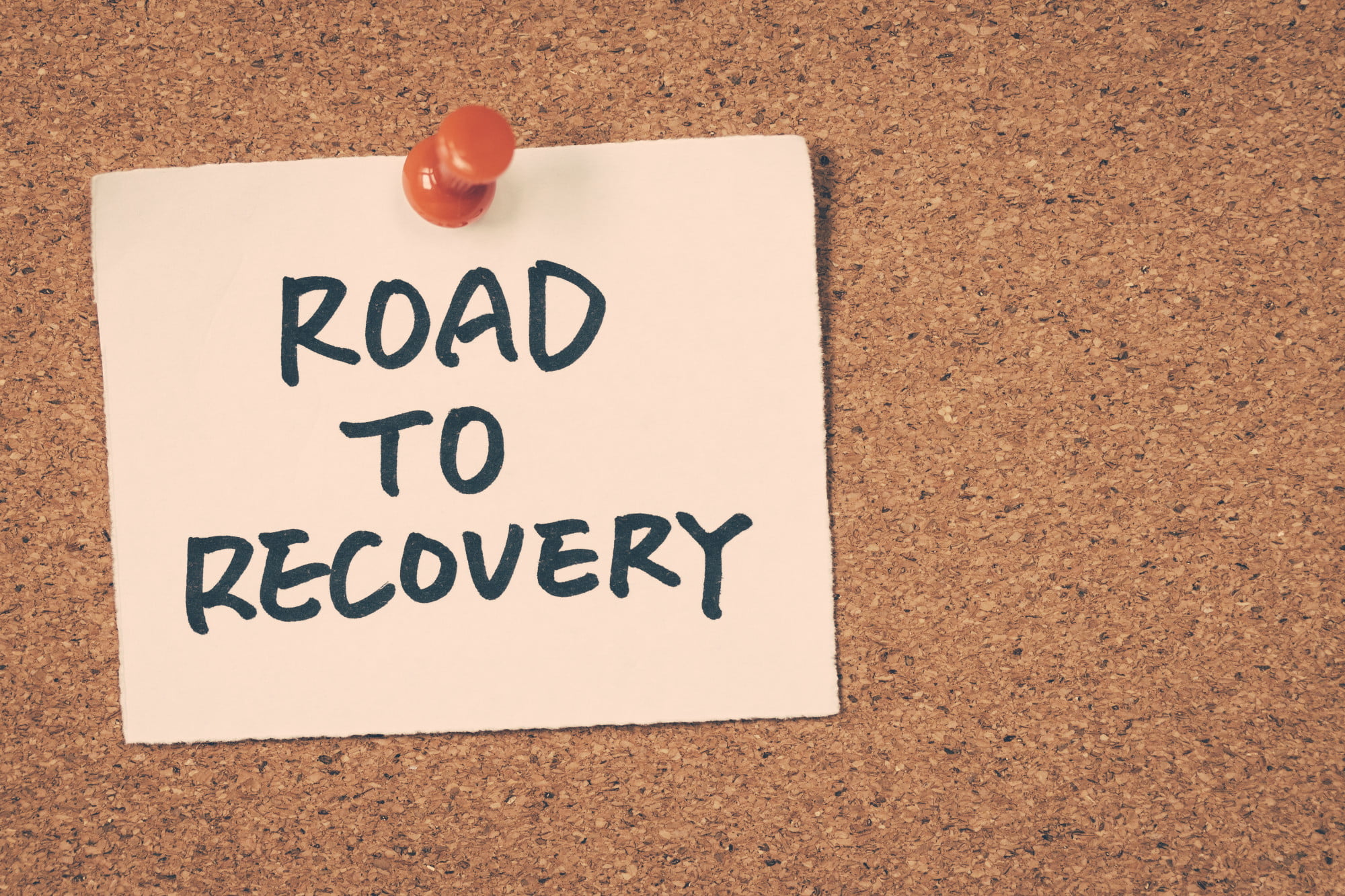Are you trying to stay sober after rehab?
Starting a new life after rehab is never an easy feat. Staying sober is a constant battle that requires vigilance, commitment, and a strong support system.
The good news is that overcoming addiction with the right mindset and tools is possible. You can also maintain your sobriety long-term.
In this article, we’ll explore practical tips on how to stay sober after rehab so you can live your best life free from addiction. These tips will help you navigate the challenges ahead and achieve lasting recovery. So let’s get started!
Embrace a Supportive Network
Embracing a supportive network is an essential aspect of staying sober after rehab. Recovery can be challenging. Having people who genuinely care about your well-being can make all the difference.
Building a support system may involve contacting family members, friends, or even peers in recovery. It’s essential to surround yourself with individuals who understand the struggles of addiction. They will offer positive reinforcement rather than judgment.
You can also join support groups such as Alcoholics Anonymous (AA) or Narcotics Anonymous (NA). They can provide you with a community of people going through similar experiences and challenges.
These groups offer a safe space for sharing feelings. You can also learn new coping mechanisms without fear of stigmatization.
It’s also crucial to seek professional help. Contact therapists or counselors trained in treating a drug or alcohol problem. They can offer guidance on maintaining sobriety and managing any potential relapse triggers.
Use Therapy and Counseling
Recovering from addiction can be a long and challenging journey. This is why therapy and counseling can be incredibly beneficial.
These professional services offer guidance and support. These can help individuals maintain their sobriety over the long term.
One of the most significant benefits of therapy is that it provides a safe space to explore emotional issues related to addiction. Counselors specializing in substance abuse treatment have experience working with people with similar challenges. This allows them to provide personalized guidance tailored to each individual’s needs.
Therapy also offers an opportunity for individuals in recovery to develop coping mechanisms. This is when they face strong emotions that could lead to relapse.
This may include strategies like mindfulness meditation. There are also cognitive-behavioral techniques designed for managing triggers.
Another essential benefit of therapy is accountability. By regularly checking in with a therapist, individuals can stay motivated. They can focus on their goals throughout the addiction recovery process.
Use therapy and counseling as part of a comprehensive approach to maintaining sobriety. This can increase the chances of success over time.
Identify and Avoid Triggers
Identifying and avoiding triggers is a crucial step in staying sober after rehab. Triggers are the people, places, things, or situations that can cause you to crave alcohol or drugs. These triggers can be different for everyone, so it’s essential to identify your own.
One way to do this is journaling when you feel cravings or urges. This will help you recognize patterns. It will also identify what might be triggering those feelings.
Once you’ve identified your triggers, avoiding them as much as possible is essential. If certain friends or social events make you want to drink, consider finding new activities or people who support your sobriety.
Another helpful strategy is developing coping mechanisms for when you do encounter triggers. For example, if stress triggers you, find healthy ways to manage stress. You can exercise or meditate.
It’s also essential to communicate with others about your triggers. Ask for their support in avoiding them. Your loved ones want to see you succeed in your recovery journey and will likely be willing to help in any way they can.
Identifying and avoiding triggers requires self-awareness and commitment. But doing so will significantly increase your chances of staying sober long-term.
Adopt a Healthy Lifestyle
Adopting a healthy lifestyle is crucial for those who want to stay sober after rehab. This includes eating well, exercising regularly, and getting enough sleep.
A balanced diet can help improve mood and reduce cravings for drugs or alcohol. Eating plenty of fruits, vegetables, lean proteins, and whole grains is essential. All these while avoiding processed foods and sugary drinks.
Exercise releases endorphins in the brain that can boost mood. This reduces stress and promotes overall well-being. Finding an exercise routine that works for you can be vital to maintaining your sobriety.
Sleeping enough sleep each night is also essential for physical and mental health. Poor sleep quality has been linked with an increased risk of relapse among those in recovery.
Additionally, hobbies such as art or music can offer a creative outlet. It also promotes relaxation and reduces stress.
Practice mindfulness techniques like meditation or yoga. These may also help manage triggers and maintain sobriety.
Adopting healthy habits goes beyond just avoiding substances. It allows individuals to build a foundation of self-care that supports their recovery journey.
Develop Coping Mechanisms
After rehab, it’s important to develop coping mechanisms. These will help you deal with the challenges of staying sober. These strategies can be critical in preventing relapse and maintaining your sobriety.
There are several ways to develop effective coping mechanisms. One is to identify your triggers and plan how to handle them when they arise.
This might include practicing relaxation techniques. You can also engage in activities that distract from negative thoughts or emotions.
It’s also helpful to seek support from others who understand what you’re going through. Join a support group or attend therapy sessions. These can provide valuable guidance and encouragement as you navigate the ups and downs of recovery.
Another important aspect of developing coping mechanisms is learning how to manage stress. This might involve incorporating regular exercise into your routine. You can also practice mindfulness meditation or yoga or find other healthy outlets for stress relief.
Developing coping mechanisms takes time, effort, and patience. But the rewards are well worth it. By building these skills and habits into your daily life, you’ll be better equipped to stay sober over the long term.
All these while enjoying greater peace of mind.
Set Realistic Goals
Setting realistic goals is an essential aspect of maintaining sobriety after rehab. It’s imperative to set attainable objectives that you can achieve over time. Don’t try to tackle everything all at once and set yourself up for disappointment.
One approach is to break down bigger goals into smaller ones that are more manageable. For example, don’t aim to completely overhaul one’s diet and exercise regimen in a week. It may be more doable to start with small changes like incorporating more vegetables into meals or taking daily walks.
You should ensure that goals align with personal values and priorities. This makes it easier to stay motivated and committed. This is because the goals have a deeper meaning than surface-level desires.
It’s also essential to remember that progress isn’t always linear. There may be setbacks or obstacles along the way. But these should not deter from continuing on the path towards achieving long-term recovery goals.
Celebrating even small successes can help maintain momentum and motivation. Setting realistic goals requires patience, self-awareness, and a willingness to adapt. It would be best to have dedication and persistence toward achievable objectives aligned with personal values.
Then, staying sober after rehab becomes an attainable reality.
Practice Self-Care
When recovering, you must focus on your mental and physical health. One of the best ways to do this is by practicing self-care.
Self-care means taking care of yourself physically, emotionally, and mentally. It involves doing things that make you feel good about yourself.
To practice self-care, start by focusing on your physical health. Taking care of your body will give you more energy and feel better overall.
Self-care also involves taking care of your emotional well-being. This could mean spending time with friends and family who support you or finding new hobbies that bring joy into your life. You might also consider seeing a therapist or attending support groups to discuss any issues you are struggling with.
Mental self-care can be as important as physical self-care when maintaining sobriety after rehab. Take time for relaxation techniques such as meditation. You can also try deep breathing exercises that help calm your anxieties down.
Self-care can help prevent relapse by giving you the tools to stay healthy. This is for both physical and mental recovery from substance abuse.
Create a Structured Routine
Creating a structured routine is essential for maintaining sobriety after rehab. It can be easy to fall back into old habits and behaviors without structure.
To create a structured routine, start by setting specific goals for yourself. These goals should be achievable and realistic.
Next, establish a daily routine that includes healthy activities. These could be exercise, meditation, and spending time with loved ones. It’s essential to focus on self-care during this process.
Setting a consistent sleep schedule is also crucial in maintaining sobriety. Lack of sleep can lead to stress and anxiety, which may trigger relapse. Establishing bedtime and wake-up time can help regulate your body’s natural rhythms.
Additionally, it’s essential to plan out your day ahead of time. This is so you have tasks to focus on instead of wandering throughout the day. This will keep you accountable and help prevent boredom or restlessness from leading you down a dangerous path.
Creating structure gives you stability and helps prevent idle moments when temptation takes hold. Follow these simple steps towards establishing regularity in your days’ post-rehabilitation treatment. You’ll find that staying sober becomes more manageable than ever before!
Avoid High-Risk Situations
Avoiding high-risk situations is a crucial step in staying sober after rehab. These situations can include being around certain people or places. Also, avoid activities that may trigger cravings or lead to relapse.
Identifying these high-risk situations and planning how to avoid them is essential. This might mean changing your social circle and avoiding specific locations. You may also have to find new hobbies and interests.
One effective strategy is to create a list of potential triggers and brainstorm ways to mitigate their impact. For example, going out with old drinking buddies is a trigger. Then, consider declining invitations or suggesting alternative activities instead.
Another helpful approach is practicing mindfulness and self-awareness. Pay attention to your thoughts and emotions in different environments. This way, you can recognize when you’re starting to feel triggered.
Remember that it’s okay to say no or remove yourself from uncomfortable situations. Prioritizing your sobriety should always come first.
Avoid high-risk situations and have a solid plan in place. This way, you can increase your chances of maintaining long-term sobriety after rehab.
Learn from Relapses
Relapses are a common occurrence in addiction recovery. It’s crucial to understand that they’re not failures. Learning from relapses is essential as they can provide valuable insight into what led to the setback.
One of the first things you should do after experiencing a relapse is to reflect on what triggered it. Was there an event or situation that caused you stress or anxiety? Did you surround yourself with people who encouraged negative behavior?
Don’t be too hard on yourself if you experience a relapse. Instead, use it as an opportunity for growth and reflection.
Evaluate your current treatment plan and consider adjusting it if necessary. Speak with your therapist about any challenges you faced leading to the relapse. Then, work together on developing strategies for preventing future setbacks.
Learning from relapses is crucial in addiction recovery. They offer insight into personal triggers. They also provide opportunities for growth and refining treatment plans.
Start Taking Steps Today To Stay Sober After Rehab
Rehabilitation and sober living are not easy tasks. But you do not have to view them as overwhelming or impossible. With support, determination, and motivation, it is possible to stay sober and keep the freedom that sobriety has to offer.
The first step is creating a plan and support system to ensure success on this life-long journey. Keep pushing forward one day at a time!
For more helpful blog posts like this one, visit the rest of our site!









